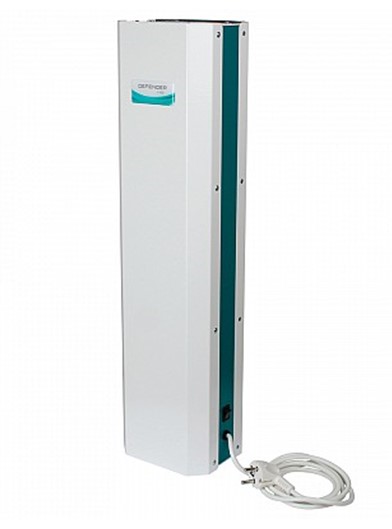Snowfalls and rains: how the consequences of bad weather were dealt with in the largest region of Belarus

December 12, Brest. The Stolin region on December 10 and 11 was dominated by snowfalls and rains. Grigory Protosovitsky, chairman of the Stolin regional executive committee, told BelTA how the Poleshuks coped with the elimination of the consequences of bad weather.
Snowfall hit the largest region of Belarus from 9 to 10 December. During the night, snowdrifts up to 20 cm high were piled up. “The services were warned in advance. By the end of the day, almost all roads were cleared by road workers and public utilities. Agricultural equipment was connected in several settlements,” Grigory Protosovitsky said. He drew attention to the fact that bad weather did not interfere with the movement of public transport. There were no disruptions in the schedule, all regular buses went on routes. Agricultural enterprises delivered raw materials to MILK processors on time.In the Stolin region on December 11, the snow turned into rain. Under such conditions, public utilities continued to clear the streets and roads. “It’s good that the temperature was positive, so there was no ice,” the chairman of the district executive committee noted. “The district executive committee is making a decision to secure the equipment of agricultural and industrial enterprises in case of an emergency. If this happened, the enterprises provided the necessary amount of equipment to quickly cope with the consequences of bad weather ".
Due to the rampant elements in the agricultural town of Bolshoye Maleshevo and the village of Semigostichi, there were power outages. The energy problems were fixed in a couple of hours. By the way, dairy complexes have not faced such a problem - they are all equipped with diesel generators.
“Our district is the largest in Belarus. But this is the land of Poleshuks. Hardworking people live who rely on themselves,” Grigory Protosovitsky added.
Read together with it:
- О самых распространенных причинах пожаров рассказали в МЧС2 октября, Минск. О самых распространенных причинах пожаров рассказал начальник главного управления надзора и профилактики МЧС Дмитрий Турчин на "Предупреждение чрезвычайных ситуаций в осенне-зимний период. Профилактика пожаров и гибели людей от них", которая прошла в БЕЛТА. "В республике наблюдается рост количества пожаров на 7,7%, и на 1......
- Премьер Финляндии призвал ЕС быть оборонным союзом, а не торговым блокомЧтобы избежать потенциальной угрозы от «враждебных государств», Евросоюз должен укреплять оборону и сотрудничать в данной сфере, заявил финский премьер Орпо. Он отметил, что это не будет значить, что Брюссель «вытесняет» НАТО Петтери Орпо Евросоюз должен взять на себя «беспрецедентные полномочия», чтобы защититься от «растущих угроз». Об этом сказал премьер-министр Финляндии Петтери Орпо, сообщает...
- "Cardboard Superpower." What is Poland prepared to take into 2026?Photo: Unsplash The Polish government has submitted its draft 2026 budget to the Sejm. In short, the hole in the Polish budget is growing even wider, and the national debt is on the verge of skyrocketing. Meanwhile, military spending is breaking records, cementing Poland's status as NATO's leader in defense spending as a percentage of GDP. However, the value of such leadership is questionable. Or ...
- Yle узнал, что ЕС не планирует вносить российский никель в список санкцийЕС не планирует вводить санкции против российского никеля, несмотря на политические требования ужесточить рестрикции. Это связано с важностью металла для оборонной промышленности союза, сообщает Yle Европейский союз не собирается вносить стратегически важный для оборонной промышленности российский никель в санкционный список, пишет Yle. Так, в 19-м пакете санкций против России, который 19 сентября...
- Politico has learned that the European Commission has proposed changing the sanctions extension mechanism.The European Commission has proposed that EU countries approve sanctions extensions by qualified majority rather than unanimity, to avoid Budapest blocking the decision. Ambassadors will discuss the new measures today. RUSSIA considers them illegal.The European Commission is proposing a change in its approach to extending sanctions against Russia to circumvent Hungary's potential blocking of the d...
- Argentina: 0% agricultural taxes: How the temporary waiver of export duties on grain and meat will workThe abolition of income taxes on more than 70 types of agricultural products, officially announced today by the national government, directly impacts Argentine grain, MEAT, and offal exports . The decree, published Monday in the Official Gazette, sets the EXPORT tax rate at 0% until October 31, 2025, or until the exhaustion of the $7 billion quota for declarations of sales abroad (DJVE), whichever...
- A salmonella outbreak has been reported in kindergartens in Komi: the source of the infection was a chicken from the Sheksninskaya poultry farm.An investigation revealed that the source of the infection was a frozen, eviscerated broiler chicken carcass under the "Blagoyar" brand, produced at the Sheksninskaya Poultry Farm in the Vologda Region. The chicken was delivered to childcare facilities through an authorized supplier that regularly works with educational institutions. All products from this batch are currently being recalled. Prior...
- Poultry culling in Sultanovo village: outbreak of dangerous disease detectedThe corresponding order from Governor Alexei Teksler was posted on the official legal information portal. The document mentions the discovery of an outbreak of a particularly dangerous animal disease, but does not disclose specific details. it states that the regional Main Veterinary Directorate will be responsible for the removal of the birds and compensation for damages to the owners.......
- The FT has revealed whether the UN will be able to stop being a "walking dead man."The UN could suffer the same fate as the League of Nations, which was closed due to its failure to stop World War II, the FT reports. Some former UN diplomats call it a "dead man walking," while others advocate for a change in structure and approach. US President Donald Trump's speech at the UN General AssemblyThe United Nations faces a deep crisis as it approaches its 8......




























































